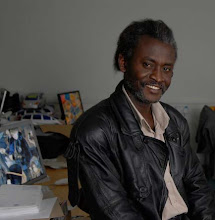Freethought is a philosophical viewpoint that holds opinions should be formed on the basis of logic, reason and empiricism and not authority, tradition, or other dogmas. The cognitive application of freethought is known as "freethinking", and practitioners of freethought are known as "freethinkers".
Now there are quite a number of people who believe that if
one is a Christian then one cannot be a freethinker. First let’s get a few
things said right at the beginning. If one forms an opinion that God exists on
the basis of logic, reason and empiricism without basing it on authority,
tradition or dogma then one can be said to have used the process of freethought
in order to arrive at the conclusion that there is a god. Freethought does not imply that the opinions you get will be
truthful, or even that they will stand all the tests of future evidence.
However a freethinker should be able to change their opinions and conclusions
when new evidence does appear.
Christianity is
usually taken as a dogmatic religion that relies on tradition and authority to
come to conclusions and opinions. However this is a narrow definition of
Christianity. In my opinion anybody who follow the teachings of Jesus Christ is
a Christian. A Christian is a person who adheres to Christianity,
an Abrahamic, monotheistic
religion
based on the life and teachings of Jesus of Nazareth as recorded in the Canonical
gospels and the letters of the New
Testament. "Christian" derives from the Koine Greek
word Christ, a
translation of the Biblical Hebrew term Messiah. On the
other hand Christian atheism is an ideology in
which the belief in the God of Christianity is rejected or absent but
the moral teachings of Jesus are followed. People who
adhere to any of these ideologies are Christian, even though the latter will
certainly not be called Christian by many sects of this religion. However one
must admit that these self-same sects consider all other similar sects as not
Christian either.
Regardless as to which definition of Christianity you use
being a freethinker would not necessarily mean that one cannot be a Christian.
Traditional Christianity demanded that one relied entirely on dogma and tradition
to have an opinion. People who follow this ideology were required to wait for
interpretation of every even and portent from authority. Thus everything,
including observable fact, had to be interpreted in light of dogma. This kind
of Christian can certainly never be a freethinker. However it was this
oppressive ideology that gave rise to freethought as we know it. Modern
Christianity is not that oppressive and there are variants that do not take
logic and reason as an anathema to faith.
For most of us our first glimmer to understanding the world
came from persons who had experienced it before us. They gave us their
observations and opinions and we grasped them as essentials to life. We get an
education in a similar manner and since the world is too large for us to
experiment on everything we get most of our “facts” in a similar manner. This
is a practical way to gain knowledge. A freethinker, however, is willing to
question each and every “fact” of learned experience and using logic reason and
empiricism should be able to validate these “facts”. If the premises are
faulty, or the methods of perception are inaccurate, the results may not be
factual however they would be results that are reached using the process of
freethought and the person, regardless as to the accuracy of his opinions,
would be a freethinker.
This process of query does not necessarily lead to abandonment,
or rejection, of all previously held opinions, neither does it guarantee that
previous information will be proven invalid. Thus it is entirely possible that
a freethinker will end up with the conclusion that not only does God exist, but
that the Christian thought is the way to approach that god. Logic is based on
certain “certainties” and empirical observation is limited by perception. There
are axioms that are the basis of any logic train and there is perception that
underlays any empirical observation. If these axioms are changed or perception
changes the same “facts” would lead to different opinions. And these changes
are the reasons you have schisms of thought and religion.
As the keen of eye would have noticed, not all Christians are theists. Isn’t that, in itself, a paradigm
shift, isn't it?




No comments:
Post a Comment